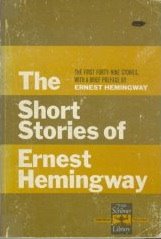
Derrick Jensen has some deep-seated aggressions, and he's made some very interesting correlations between his personal history to the history nations and civilizations have in general.
Civilization is bad. The destruction civilization leaves in its wake is so monumental it is disturbing at a root level, a level we as humans, we as the perpetrators of this violence, have an obligation to stop. Civilization kills everything, all life on earth, without giving anything back, and for this reason, Jensen says, civilization has to be ended.
He's right, on many levels, and these make his book very disturbing and topical. First off, a sustainable way of life is not possible with civilization. Too many resources are taken from the land to keep us going, and, well, it makes sense that since most of us (myself included) have jobs that don't contribute to giving back to the land, that at some point the land will stop giving to us. But even with the efforts of individuals towards sustainability (my wife and I included), we as individuals, Jensen says, will make little difference to the earth. It is more what corporations and governments do, the over-fishing, over-logging, over-industrialization for economic gain that is doing the real harm.
Jensen writes that anyone who buys into civilization is insane, because it is exponentially more harmful to the land and humans the longer it lasts. He equates this violence with personal violence, and says that if we would stop personal violence, why not stop cultural violence, why stand by idly and watch it happen. The phrase he uses most is, "What will it take before you fight back?"
Well, what will it take?
Jensen makes many more points than outlined above, and has a particularly chilling chapter on oil that is as unsettling as it is realistic (by which I mean very), but I have no interest to elaborate here. These are the points that stuck with me, so they are the ones I mention.
Take out the dams, fell cell phone towers, take down civilization and its infrastructure and force people to live with the land like they once did, Jensen says. Yes, this is a valid point to hear in the culture of today, what with global warming and all the destruction still being done to our planet, but I must venture to say that there is little hope for this succeeding. More than likely, as has happened in the past, our culture will reach its breaking point (perhaps even it already has reached it) and homeostasis will begin to take effect. Grand scale things have been done, and nothing can be done to reverse them now. We as humans will live with our mistakes and continue to live with them. Our children will pay for our mistakes the same we do for the mistakes of our ancestors.
Jensen's answer, to fight violence with violence, is unsettling and unrealistic, I feel. As much as I see his point, I can't help but think of Kurt Vonnegut, who wrote in Man Without a Country that the what happens in the world is inevitable at this point regardless of what we do, we have to live with it (of course, he said it much more eloquently). I think Jensen actually said it pretty well too. After he purports we take down civilization by comparing its violence to the sexual and physical violence his father imparted on him (not sure there's a connection other than literary here), he defends taking a plane, despite the damage it does to the environment (not to mention the fact that his book is a complete waste of paper, with at least fifty blank pages throughout). He writes: "The truth is that had I not flown, the airplane would still have killed those wasps, and the industry would still have destroyed those fields. Sure I would have cost the airline money, and United's gross income for the year would have been $400 less than $38 billion..." So he's advocating the downfall of something he uses yet abdicating himself from any guilt in the meantime.
I have little patience for hypocrites like this. Despite the fact that many of his arguments are presented in the form of conversations with various people of through email, he does make good points, but it's not a radical change I'm up for making. I'm fine being insane, thank you, and I'll do what I can to personally make changes to help and respect the environment, because I certainly do) and even do what I can to keep corporations from doing more harm.
I'm not sure whether to recommend this book or not. So, if you're interested, look for the book with thick pages written by an environmental activist who chides logging companies for deforestation yet takes no steps to lessen the impact of his redundant 500 page non-fiction rant against civilization.
 This year has been an interesting one. It started out full of promise, of hope, and slowly peppered off until few lights shined and I was screaming for 2009 to come. And in the coming year I hope just the opposite is true: that it takes the tread a bit to catch on, but when it does, I hope we really move.
This year has been an interesting one. It started out full of promise, of hope, and slowly peppered off until few lights shined and I was screaming for 2009 to come. And in the coming year I hope just the opposite is true: that it takes the tread a bit to catch on, but when it does, I hope we really move.































